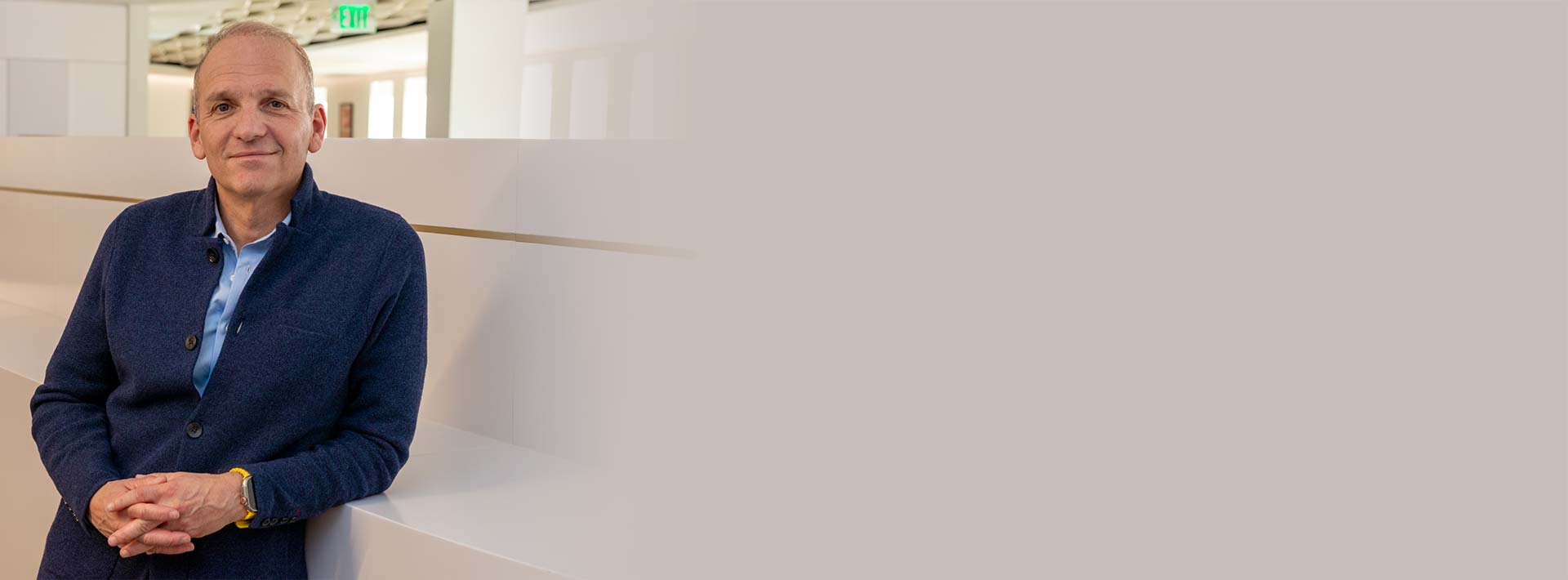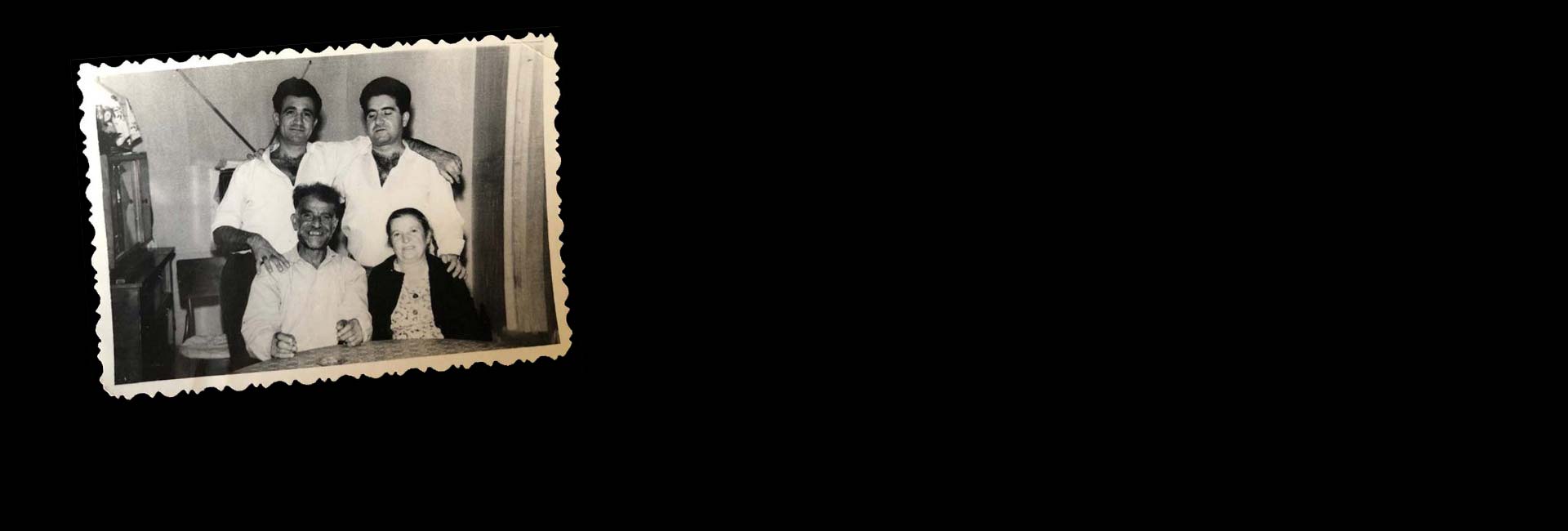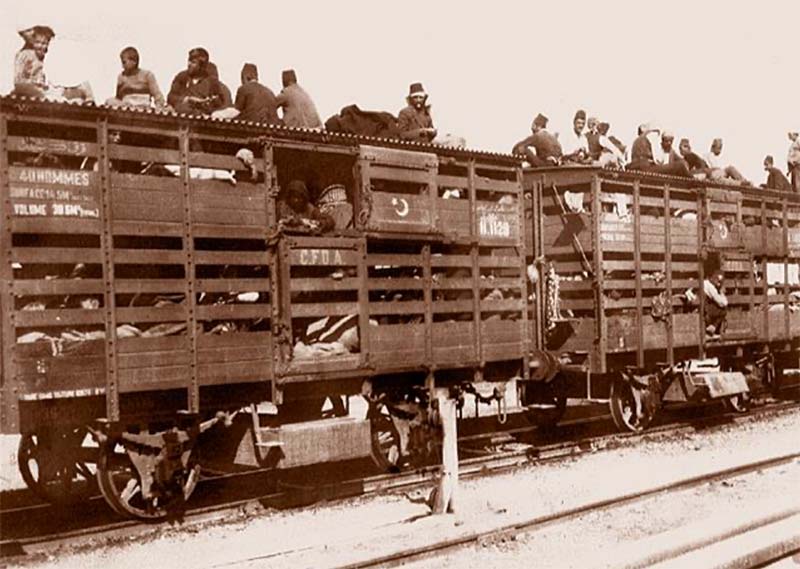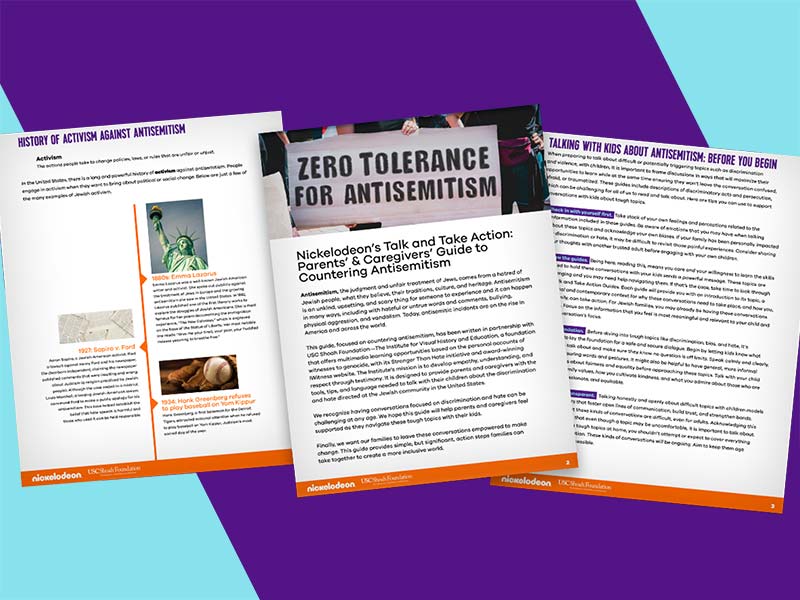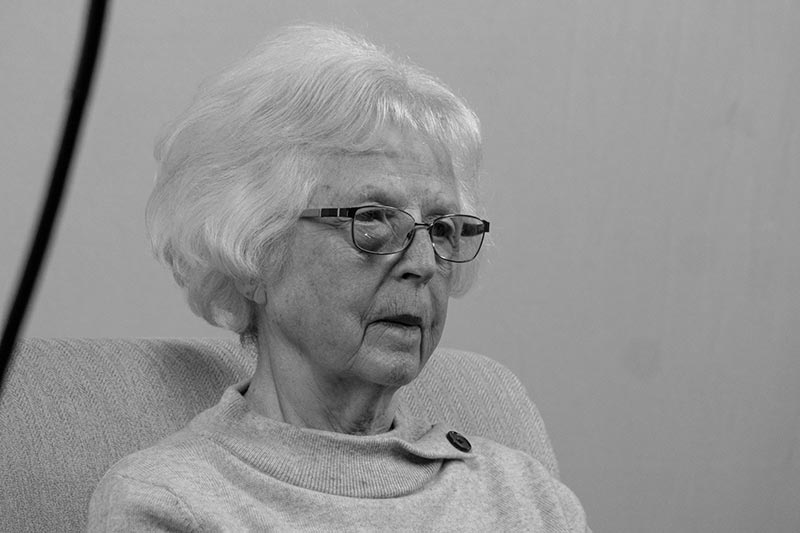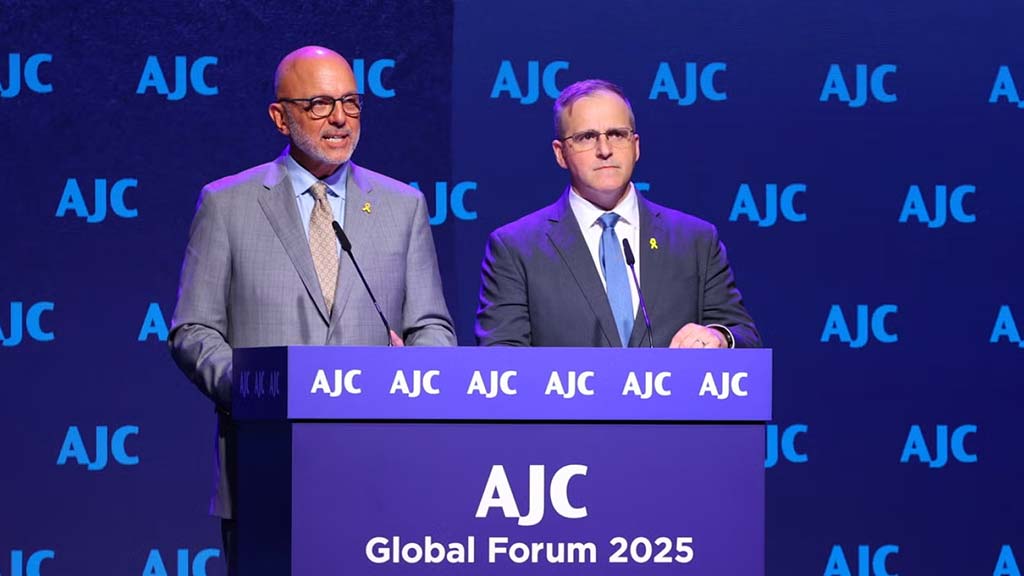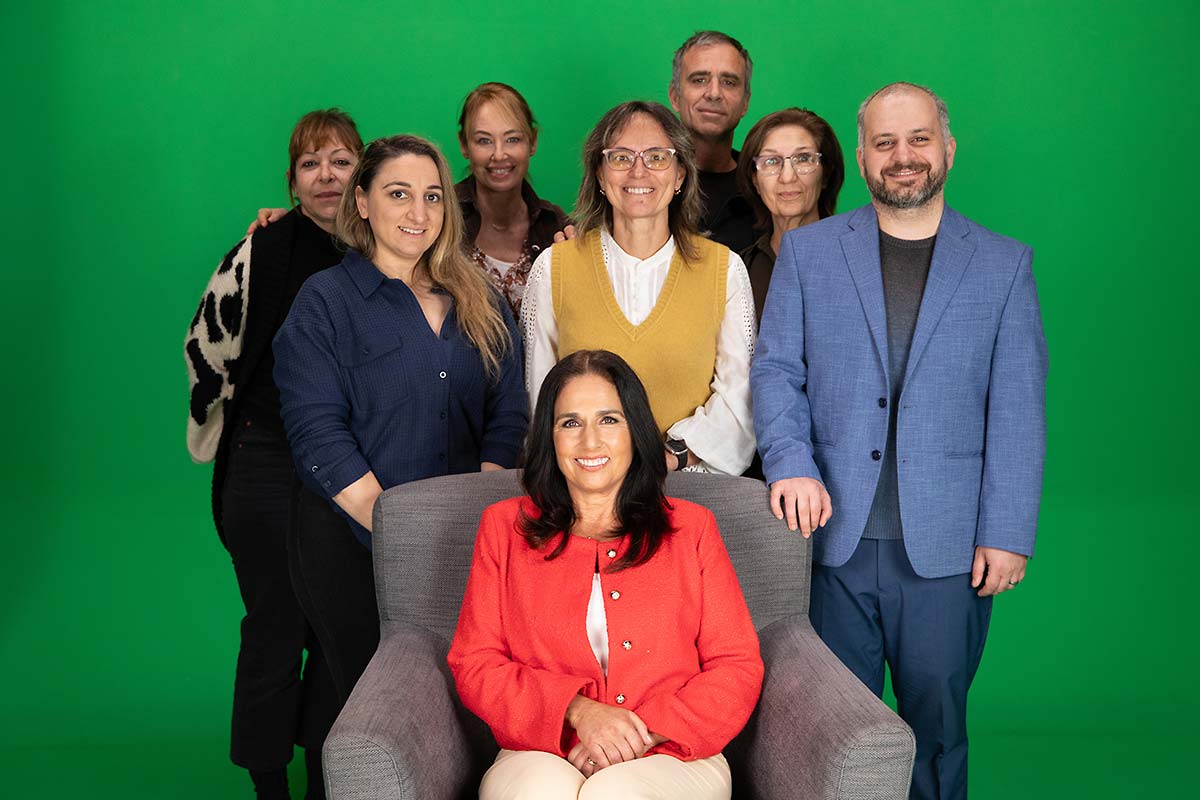The Shoah Foundation Story
In 1994 we launched an unprecedented effort to record, preserve, and share the testimonies of Holocaust survivors. Over the past 30 years, we have built a world-class institute anchored in their voices. Learn more about our global impact.
Do you know a Holocaust survivor or witness?
We are currently recording survivors and other witnesses of the Holocaust. If you are a survivor or know someone who is, we would love to hear from you. We are also looking for interviewers.
Latest News
USC Shoah Foundation Partners with Armenian Genocide Museum
New Guides to Countering Antisemitism Added to Nickelodeon Anti-Hate Series
Dimensions in Testimony Reaches Milestone of 50 Interactive Interviews
More News
Stay in Touch!
Receive USC Shoah Foundation news, survivor stories, upcoming events, and more in your inbox.
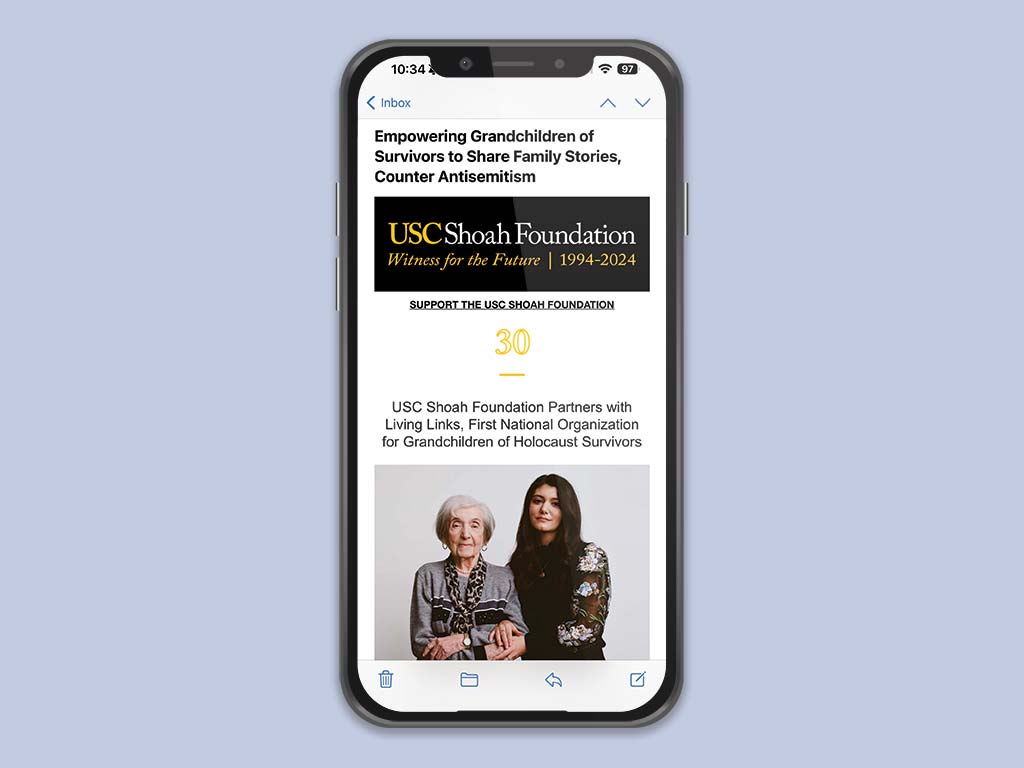
You Can Make A Difference
The USC Shoah Foundation's educational programs bring survivors' voices into classrooms, preserving the memory of the Holocaust and inspiring future generations to strengthen democratic values, confront antisemitism, and work toward building more peaceful, respectful, and inclusive societies.



